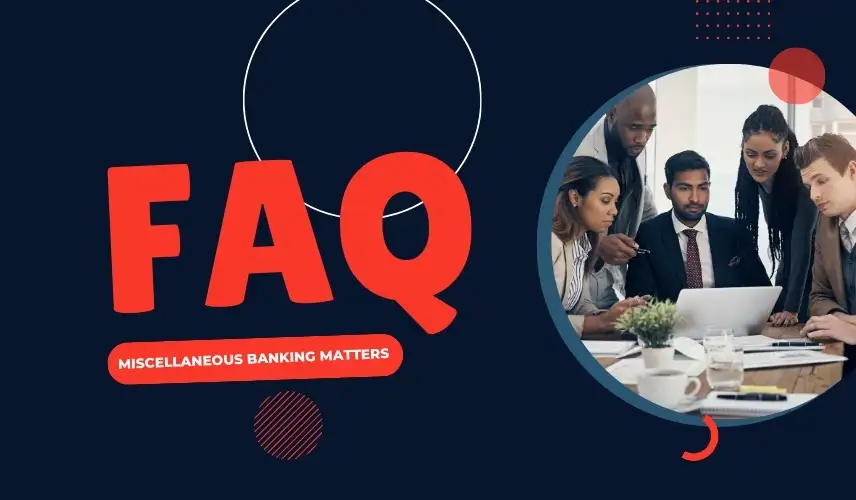
FAQ about Frauds and Criminal Cases
Answer: Master Directions on Frauds – Classification and Reporting by commercial banks and select Financial Institutions No. RBI/DBS/2016-17/28 ---DBS.CO.CFMC.BC.No.1/23.04.001/2016-17 dated 01/07/2016
Important Contents :
1)Classification of Frauds --- Paragraph 2.2.1 of the Master Circular on Frauds
2.2 Classification of Frauds
2.2.1 In order to have uniformity in reporting, frauds have been classified as under, based mainly on the provisions of the Indian Penal Code:
- Misappropriation and criminal breach of trust.
- Fraudulent encashment through forged instruments, manipulation of books of account or through fictitious accounts and conversion of property.
- Unauthorised credit facilities extended for reward or for illegal gratification.
- Cash shortages.
- Cheating and forgery.
- Fraudulent transactions involving foreign exchange
- Any other type of fraud not coming under the specific heads as above
2)Filling of complaints with Law Enforcement Agencies in the case of Loan Frauds ---. Paragraph 8.11 of the Master Circular on Frauds
8.11 Filing Complaints with Law Enforcement Agencies
8.11.1 Banks are required to lodge the complaint with the law enforcement agencies immediately on detection of fraud. There should ideally not be any delay in filing of the complaints with the law enforcement agencies since delays may result in the loss of relevant ‘relied upon’ documents, non-availability of witnesses, absconding of borrowers and also the money trail getting cold in addition to asset stripping by the fraudulent borrower.
8.11.2 It is observed that banks do not have a focal point for filing CBI / Police complaints. This results in a non-uniform approach to complaint filing by banks and the investigative agency has to deal with dispersed levels of authorities in banks. This is among the most important reasons for delay in conversion of complaints to FIRs. It is, therefore, enjoined on banks to establish a nodal point / officer for filing all complaints with the CBI on behalf of the bank and serve as the single point for coordination and redressal of infirmities in the complaints.
8.11.3 The complaint lodged by the bank with the law enforcement agencies should be drafted properly and invariably be vetted by a legal officer. It is also observed that banks sometimes file complaints with CBI / Police on the grounds of cheating, misappropriation of funds, diversion of funds etc., by borrowers without classifying the accounts as fraud and/or reporting the accounts as fraud to RBI. Since such grounds automatically constitute the basis for classifying an account as a fraudulent one, banks should invariably classify such accounts as frauds and report the same to RBI.
3) Penal Measures for Fraudulent Borrowers --- Paragraph 8.12 of the Master Circular on Frauds
8.12 Penal measures for fraudulent borrowers
8.12.1 In general, the penal provisions as applicable to wilful defaulters would apply to the fraudulent borrower including the promoter director(s) and other whole time directors of the company insofar as raising of funds from the banking system or from the capital markets by companies with which they are associated is concerned, etc. In particular, borrowers who have defaulted and have also committed a fraud in the account would be debarred from availing bank finance from Scheduled Commercial Banks, Development Financial Institutions, Government owned NBFCs, Investment Institutions, etc., for a period of five years from the date of full payment of the defrauded amount. After this period, it is for individual institutions to take a call on whether to lend to such a borrower. The penal provisions would apply to non-whole time directors (like nominee directors and independent directors) only in rarest of cases based on conclusive proof of their complicity.
8.12.2 No restructuring or grant of additional facilities may be made in the case of RFA or fraud accounts. However, in cases of fraud/malfeasance where the existing promoters are replaced by new promoters and the borrower company is totally delinked from such erstwhile promoters/management, banks and JLF may take a view on restructuring of such accounts based on their viability, without prejudice to the continuance of criminal action against the erstwhile promoters/management.
8.12.3 No compromise settlement involving a fraudulent borrower is allowed unless the conditions stipulate that the criminal complaint will be continued.
8.12.4 In addition to above borrower- fraudsters, third parties such as builders, warehouse/cold storage owners, motor vehicle/tractor dealers, travel agents, etc. and professionals such as architects, valuers, chartered accountants, advocates, etc. are also to be held accountable if they have played a vital role in credit sanction/disbursement or facilitated the perpetration of frauds. Banks are advised to report to Indian Banks Association (IBA) the details of such third parties involved in frauds.
8.12.5 Before reporting to IBA, banks have to satisfy themselves of the involvement of third parties concerned and also provide them with an opportunity of being heard. In this regard the banks should follow normal procedures and the processes followed should be suitably recorded. On the basis of such information, IBA would, in turn, prepare caution lists of such third parties for circulation among the banks.
Categories
Related Miscellaneous FAQs
-

FAQ about Mortgage, Hypothecation, Pledge and Charge
Know more about frequently asked questions [...]
-

FAQ about Personal Guarantee
Know more about frequently asked questions [...]
-

FAQ about Limitation
Know more about frequently asked questions [...]
-

FAQ about Redemption
Know more about frequently asked questions [...]
-

FAQ about Sale of Assets
Know more about frequently asked questions [...]
-

FAQ about Non Performing Assets (NPA)
Know more about frequently asked questions [...]
-

FAQ about Wilful Defaulters
Know more about frequently asked questions [...]
-

FAQ about Frauds and Criminal Cases
Know more about frequently asked questions [...]
-

FAQ about Settlement, Restructuring and One time Settlement
Know more about frequently asked questions [...]
